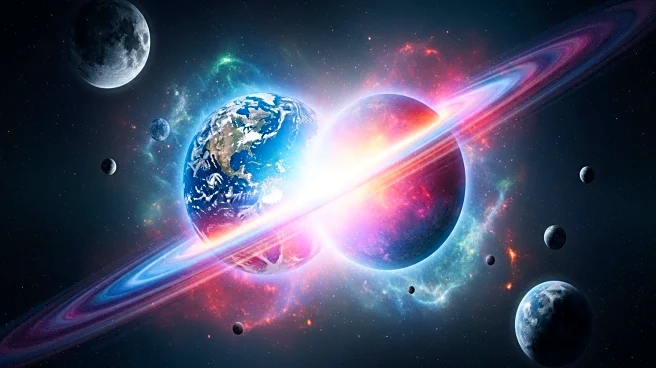What is the story about?
What's Happening?
A recent study by the Institute of Geological Sciences at the University of Bern has provided new insights into the early formation of Earth, suggesting that a cosmic collision was crucial in making the planet habitable. The research indicates that the chemical composition of the proto-Earth was completed less than three million years after the Solar System's formation, but initially lacked essential elements for life, such as water and carbon compounds. The study posits that a later collision with a planet named Theia, which likely formed further from the Sun, brought these vital elements to Earth. This event is believed to have transformed Earth from a dry, rocky planet into one capable of supporting life.
Why It's Important?
This discovery is significant as it challenges the understanding of how life-supporting conditions on Earth were established. The findings suggest that Earth's habitability was not a gradual development but rather the result of a fortuitous cosmic event. This has implications for the search for life on other planets, indicating that life-friendly conditions may be rarer and more dependent on specific cosmic events than previously thought. The study underscores the role of chance in the development of life-supporting environments, which could influence future research in planetary science and astrobiology.
What's Next?
The next steps involve further investigation into the collision event between proto-Earth and Theia. Researchers aim to develop models that can explain not only the physical properties of Earth and the Moon but also their chemical compositions and isotope signatures. This could provide a more comprehensive understanding of the processes that lead to the formation of habitable planets, potentially guiding future explorations of other celestial bodies in the search for life.
Beyond the Headlines
The study highlights the unpredictable nature of planetary development and the potential rarity of life-supporting conditions in the universe. It raises questions about the uniqueness of Earth's life-friendly environment and the role of random cosmic events in shaping planetary systems. This could lead to a reevaluation of the criteria used to assess the habitability of exoplanets and influence the direction of future space exploration missions.
















